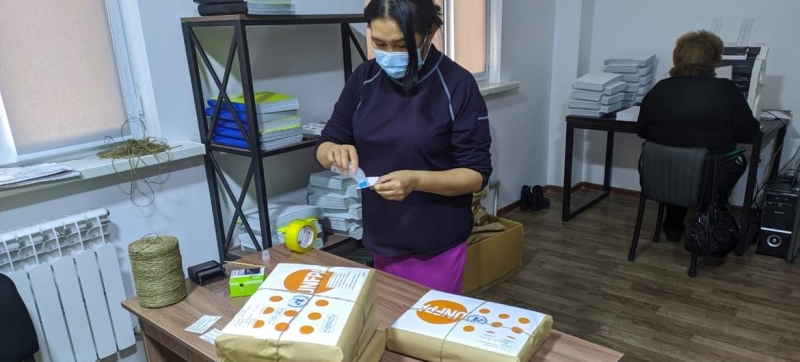
Many years ago, in a gynecologist’s office in Ashgabat, Turkmenistan, Aliya (not her real name) and her husband were told that it was “undesirable” for them to have a child because that they are both blind.
“How can you take care of the child? How will you raise him, look after him?”—she recalls the questions asked to her. “They thought we wouldn’t be able to cope at all and suggested we have an abortion,” Aliya told the United Nations Population Fund (UNFPA). – But I didn’t agree. My mother is also blind, and she raised seven of us.”
Aliyah’s experience, Unfortunately, it is familiar to every fifth woman around the world living with a disability. Despite international agreements guaranteeing people around the world the freedom to make reproductive choices without discrimination or coercion, women with disabilities often face a different reality, one in which prejudice forces health professionals , intimate partners and the public to doubt their ability to make decisions in the area of sexual and reproductive health.
Research shows that women and girls with disabilities often face discrimination in their reproductive choices, are denied health services due to problems with access to… they are excluded from comprehensive sexuality education programs, especially in special educational institutions. And for some, this discrimination can even lead to forced sterilization. Like Aliya, many of them were considered unprepared for pregnancy and parenthood.
A UNFPA study conducted in 2021 found that many people with disabilities in Turkmenistan do not have access to sexual and reproductive services and information. health. To meet their needs, UNFPA and the Society of the Blind and Deaf of Turkmenistan created videos on sexual and reproductive health, accompanied by sign language interpretation. The videos, available online and on flash memory cards, cover topics such as puberty, family planning and safe motherhood. There are currently plans to create a mobile application.
Women said that thanks to the resources they received free access to ;nbsp;contraception and care for pregnant women. They also appreciated the inclusion of contact information for various clinics and service providers in the materials. These and other steps allow the country to become a more inclusive and fair place for pregnant women with disabilities.
However, Alia says more needs to be done: “The level of knowledge of medical staff needs to be improved so that we are accepted and treated the same as everyone else.” . Meanwhile, she took on parenting responsibilities despite being visually impaired, like her mother before her. “I knew I could do it,” she said.
Read also:
UN: 800 women die every day in childbirth
